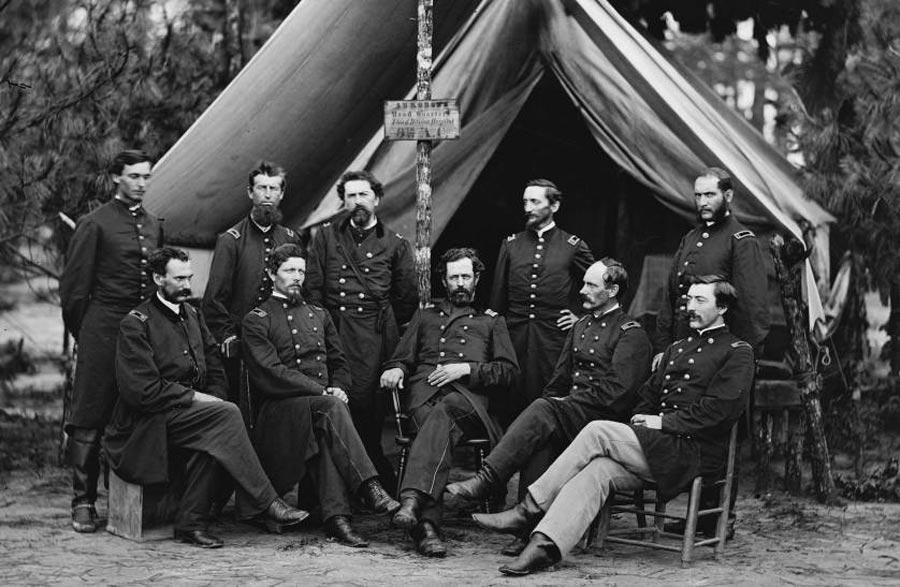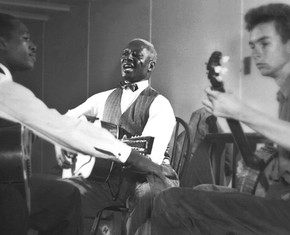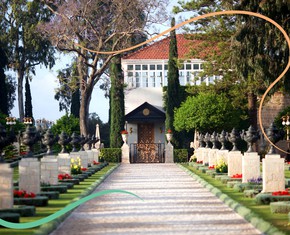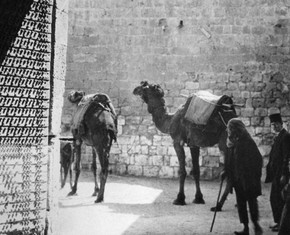The views expressed in our content reflect individual perspectives and do not represent the authoritative views of the Baha'i Faith.
In America’s Civil War, two and a half million men, most of them volunteers and most of them white, fought to eradicate slavery.
We tend to forget that amazing, altruistic fact. Contemplate it for a moment, and then honestly ask yourself “Would I do that?”
Then, while you’re thinking about it, consider one more remarkable factor in your decision: less than half of all Union soldiers were native-born Americans. Actually, a third of them came from Europe. Ten percent were of African descent, either freedmen from the North or ex-slaves from the South. The majority of Union soldiers weren’t even American citizens by birth, and yet they risked their lives to end American slavery. By any standard, that is remarkable.
You can begin to understand the international nature of the Union side of the Civil War just by reading a list of its various military units: the Irish Brigade; the Swiss Rifles; the French Gardes Lafayette; the Garibaldi Guard; the Martinez Militia; the Polish Legion; the German Rangers; the Scandinavian Regiment. In one way, the Civil War was the first war in human history to use a multinational force.

Historians agree that most Union Army soldiers, no matter what their national origin, fought to restore the unity of the United States, but emphasize that:
… they became convinced that this goal was unattainable without striking against slavery. - James M. McPherson, For Cause and Comrades: Why Men Fought in the Civil War, p. 118.
McPherson’s book adds that witnessing the Southern slave system first-hand significantly strengthened the anti-slavery views of white Union soldiers, leaving them appalled by the system’s brutality:
Experience in the South reinforced the antislavery sentiments of many soldiers. One Pennsylvanian Union soldier spoke to a slave woman whose husband was whipped, and was appalled by what she had to tell him of slavery. He stated that “I thought I had hated slavery as much as possible before I came here, but here, where I can see some of its workings, I am more than ever convinced of the cruelty and inhumanity of the system.” – Ibid., pp. 36-37.
So, did you come up with your response to the question yet? Here it is again: Would you risk your life to free slaves? Even if it meant never firing a weapon or killing anyone, serving as a cook or a medic or a clerk, would you put yourself in harm’s way to help others attain their freedom?
If you answered yes, you might be a Baha’i:
The supreme need of humanity is cooperation and reciprocity. The stronger the ties of fellowship and solidarity amongst men, the greater will be the power of constructiveness and accomplishment in all the planes of human activity. Without cooperation and reciprocal attitude the individual member of human society remains self-centered, uninspired by altruistic purposes, limited and solitary in development like the animal and plant organisms of the lower kingdoms. – Abdu’l-Baha, The Promulgation of Universal Peace, p. 338.
A Baha’i denies no religion; he accepts the Truth in all, and would die to uphold it. He loves all men as his brothers, of whatever class, of whatever race or nationality, of whatever creed or colour … – Abdu’l-Baha, Abdu’l-Baha in London, p. 56.
The Cause of Baha’u’llah prohibits slavery, and asks every human being to help end it, and help end the prejudice and racism that allows it to occur in the first place. The Baha’i teachings also remind us that not all white people fought to enslave others; and that we all owe a debt of gratitude to those Union soldiers who sacrificed themselves for freedom:
The black man must ever be grateful to the white man, for he has manifested great courage and self-sacrifice in behalf of the black race. Four years he fought their cause, enduring severe hardships, sacrificing life, family, treasure, all for his black brother until the great war ended in the proclamation of freedom. By this effort and accomplishment the black race throughout the world was influenced and benefited. Had this not been accomplished, the black man in Africa would still be bound by the chains of slavery. Therefore, his race should everywhere be grateful, for no greater evidence of humanism and courageous devotion could be shown than the white man has displayed. – Abdu’l-Baha, The Promulgation of Universal Peace, p. 112.
During the same visit to the United States and Canada in 1912, Abdu’l addressed African-Americans directly, with a loving prescription for integration, unity and gratitude:
Therefore, you must be very grateful to the whites of America, and the whites must become very loving toward you so that you may progress in all human grades. Strive jointly to make extraordinary progress and mix together completely. In short, you must be very thankful to the whites who were the cause of your freedom in America … I pray that you attain to such a degree of good character and behavior that the names of black and white shall vanish. All shall be called human, just as the name for a flight of doves is dove. They are not called black and white …
I hope that you attain to such a high degree—and this is impossible except through love. You must try to create love between yourselves; and this love does not come about unless you are grateful to the whites, and the whites are loving toward you, and endeavor to promote your advancement and enhance your honor. – Abdu’l-Baha, The Promulgation of Universal Peace, p. 45.
This kind of sincere gratitude and cooperative advancement might seem strange or foreign today, when the Civil War has receded so far from living memory, and when racism continues to polarize entire societies. But the next time you see a statue, monument or plaque commemorating a Union soldier, you might want to silently give thanks for the 364,511 of them who died in combat or from disease, and the 281,881 who were wounded. Of course, that goes for anyone who made the ultimate sacrifice for altruistic reasons. After all, they suffered and died so all human beings could be free.
You May Also Like
Comments

















Seriously, do not honor these men, or any one, who fights in bloody and destructive wars.
It's sad to me that you wrote this piece saying NOTHING but praise for these men who committed actual war crimes in a series about how we should stop honoring horrible figures in the past!!
NO. There should be no honor for Confederate or Union warriors. Slaughter of civilians is NOT justified by the goal of wanting to ...free slaves!! There should be ~no~ glorification of war.
Your thoughts expressed in your articles are important to be shared, and not only by Baha'is.
Always with love ~ Russ Norman